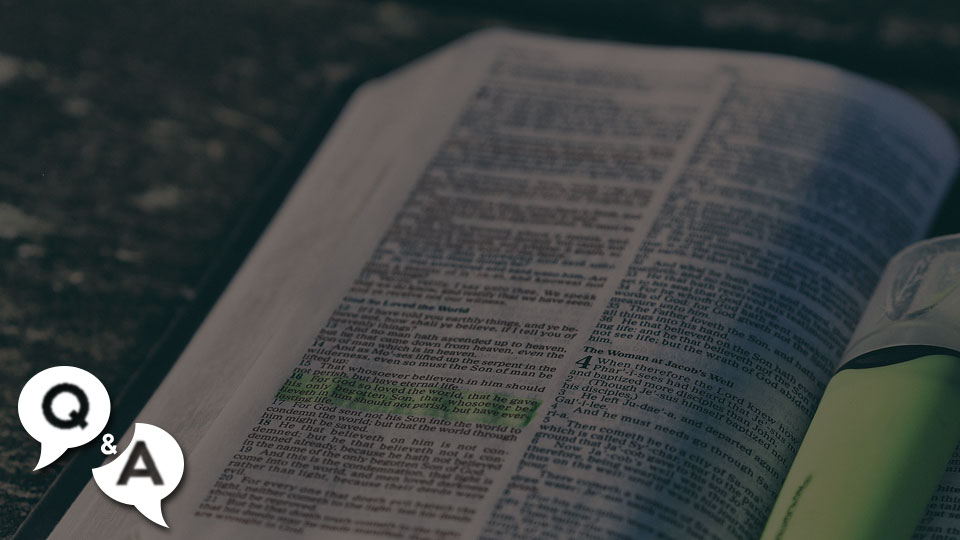February 9, 2020 • The Fifth Sunday in Ordinary Time
First Reading: Isaiah 58:7–10
Psalm: Psalm 112:4–5, 6–7, 8–9 (4a)
Second Reading: 1 Corinthians 2:1–5
Gospel Acclamation: John 8:12
Gospel: Matthew 5:13–16
Introduction
This Sunday’s readings are about letting the light and glory of God shine through us in the way we live and treat the people around us. They also warn against false shows of piety and uprightness while following our own pursuits, seeking our own ways, seeking our own interests and pursuing our own affairs. But how can we tell if our piety and uprightness is for show and self-glory? That is what our readings will reveal.
First Reading
The first reading is taken from Isaiah 58, and I encourage you to read the entire chapter in order to get the context for the reading. It is only fourteen verses. The reading itself focuses mostly on what God wants us to do and mostly leaves out the pious self-deception the people of Judah were engaging in as they carried out their own corrupt agendas on the people around them. So I will be pulling in excerpts from the other verses to give us a more well-rounded view.
Verses 2 and 3a outline their “spiritual” behavior:
2 They seek me day after day, and desire to know my ways, Like a nation that has done what is just and not abandoned the judgment of their God; They ask of me just judgments, they desire to draw near to God. 3a “Why do we fast, but you do not see it? afflict ourselves, but you take no note?” – New American Bible Revised Edition (NABRE)
Sounds good, doesn’t it? Except for thinking God owes them for their spirituality in the form of “just” judgments in their favor against others. God sees right through them and responds in verses 3b–4 and 5b.
3b See, on your fast day you carry out your own pursuits and drive all your laborers. 4 See, you fast only to quarrel and fight and to strike with a wicked fist! 5b Is this what you call a fast, a day acceptable to the LORD? – NABRE
Here’s what their Sabbath day observance looked like from God’s view.
Following your own pursuits on my holy day; following your ways, seeking your own interests, or pursuing your own affairs. – Excerpts from Isaiah 58:13, NABRE
The first reading then is how God wanted them and wants us to fast and to observe His holy day, if it is going to be acceptable to Him. Feed the hungry, shelter the oppressed and the homeless, clothe the naked when we see them, do not turn our back on our own, remove from our midst oppression, false accusation and malicious speech. Then the Lord will answer prayers, heal, vindicate, have our backs and our light will break forth like the dawn. And He Himself will be our light in the darkness.
Responsorial Psalm
The just man in the Psalm is the one who lives and practices the justice towards others that God is looking for as outlined in the first reading. He lives in security and stability, trusting in the Lord, amid our broken world. And the response says that he is a light in the darkness to the upright. I think of Saint Teresa of Calcutta and Saint Katharine Drexel when I read this Psalm. And of course, our Lord Jesus Christ Himself.
Second Reading
The Apostle Paul in the second reading gives instruction to those of us who are involved in speaking and teaching ministries. We can either exercise them in a way which brings glory to ourselves or in a way which brings glory to God and releases His power in the lives of those to whom we minister. The key is humility and remembering who is being served as we minister. We should be vulnerable about our own struggles, fears and weaknesses while making much of the Lord and how He has come through for us. We should not seek to impress people with our knowledge and eloquence, lest we entice them to follow us rather than our Lord Jesus Christ whom serve. If we follow Saint Paul’s instructions, then we will see God at work, transforming lives and drawing people to Himself.
Gospel Acclamation
The Lord Jesus is the light of the world. If we follow Him, we will have the light of life flowing through us to the world.
Gospel
Jesus tells His disciples that they are the salt of the earth, His preserving and flavorful influence in the world. They are also the light of the world just like their Master, if they have Him shining in their hearts and lives, expressed outwardly in good deeds such as the spiritual and corporal works of mercy, as outlined in the Catechism in paragraph 2447 below.
2447 The works of mercy are charitable actions by which we come to the aid of our neighbor in his spiritual and bodily necessities. Instructing, advising, consoling, comforting are spiritual works of mercy, as are forgiving and bearing wrongs patiently. The corporal works of mercy consist especially in feeding the hungry, sheltering the homeless, clothing the naked, visiting the sick and imprisoned, and burying the dead. Among all these, giving alms to the poor is one of the chief witnesses to fraternal charity: it is also a work of justice pleasing to God:
He who has two coats, let him share with him who has none and he who has food must do likewise. But give for alms those things which are within; and behold, everything is clean for you. If a brother or sister is ill-clad and in lack of daily food, and one of you says to them, “Go in peace, be warmed and filled,” without giving them the things needed for the body, what does it profit?
Conclusion
May God bless the reading and exposition of His written word.







